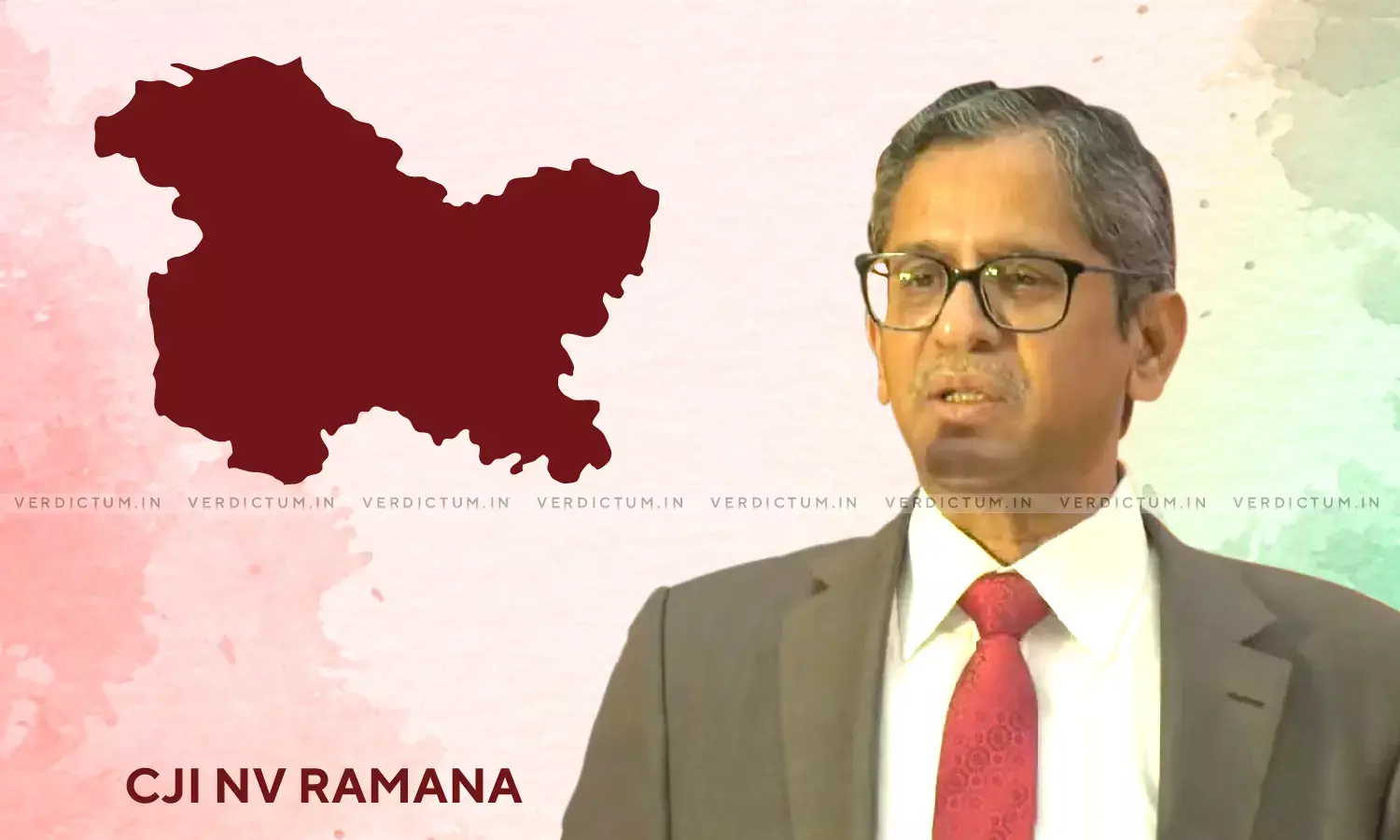Kashmir A Confluence Of Hinduism, Buddhism & Islam, Plurality Needs To Be Sustained: CJI N V Ramana
The comments have come in the background of a renewed attack on Kashmiri Pandits by Islamist extremists in the valley.

Chief Justice of India N V Ramana today said that the plurality in Kashmir needs to be sustained and cherished. He was speaking after laying the foundation stone of the new High Court building complex at Srinagar.
The comments have come in the background of a renewed attack on the Kashmiri Pandits by Islamist extremists.
"As poet Raja Basu, an admirer of Kashmir observed, Jammu and Kashmir is the confluence of three great religions - Hinduism, Buddhism and Islam. It is this confluence which is at the heart of our plurality which needs to be sustained and cherished", the CJI said.
The Chief Justice added that "Unfortunately, wealth creation is not commensurate with the true potential of this beautiful region with invaluable and highly skilled human resources. This situation needs to change, for this land's brightest future".
"The soils of Kashmir are home to the world's best saffron, red chillies, apples and walnut. Kashmiri artisans are known all over the world for their crafts and textiles", Justice Ramana said.
Justice Ramana said that the balance maintained between traditional craftsmanship and contemporary designs has created a worldwide market for these products. "This global acknowledgement of the ancient art form is a nod to the multiple influences, the craftsmen had throughout history. The heart of Kashmir, is the heart of its people!", the Chief Justice of India said.
Justice Ramana said that Jammu and Kashmir has produced many eminent jurists and judges. Among them were two former Chief Justices of India, Shri Justice A.S. Anand and Shri Justice T. S. Thakur, and 9 Judges who adorned the Bench of the Supreme Court. "The 10th one, Brother Justice Kaul is on the dais with us", Justice Ramana said.
"For the functioning of a healthy democracy, it is imperative that the people feel that their rights and dignity are protected and recognised. Expeditious adjudication of disputes is the hallmark of a healthy democracy. Denial of justice would ultimately lead to anarchy. Soon the institution of judiciary would be destabilized as people will look for extrajudicial mechanisms", Justice Ramana said.
Justice Ramana said that he is extremely glad to be laying the foundation stone of the New High Court Complex in Srinagar. "Solving the problems of infrastructure is very close to my heart. I have consistently emphasized the need for development and modernization of infrastructure. Sadly, post-independence, judicial infrastructure has not been over-hauled to meet the demands of growing needs of modern India", he said.
He said that the District judiciary is the foundation of the judiciary. He added that only if the foundation is strong, the entire system can flourish. "As I have mentioned earlier, the condition of judicial infrastructure across the country is far from satisfactory. Courts are operating from rented accommodations and under deplorable conditions", he said.
Judges and lawyers must take an oath to work hard to make justice a reality, he said, adding "Mere laws are not enough to build tradition in a country. It requires men of indelible character inspired by high ideals to infuse life and spirit in the skeleton of the laws".
Speaking of the importance of alternative dispute resolution, the CJI told the gathering of judges, "You must persuade parties to choose ADR mechanisms whenever possible. This will not only help the parties, but also will help in reduction of pendency. Our National and State Legal Services Authorities are active in the field. You must make best use of the same".
Addressing the lawyers who had gathered, the CJI said, "A vigilant Bar is a great asset to the judiciary. To succeed in their endeavours, lawyers must ensure that professional standards are maintained, and legal ethics do not take a back seat. There cannot be a good judgement without the assistance of the advocate. The relationship between the Bench and the Bar plays an important role in the process of dispensation of justice. I am sure that you will be able to make use of this new structure, to shape the future of this great land to reach out to the needy".
Read the full text of the speech

